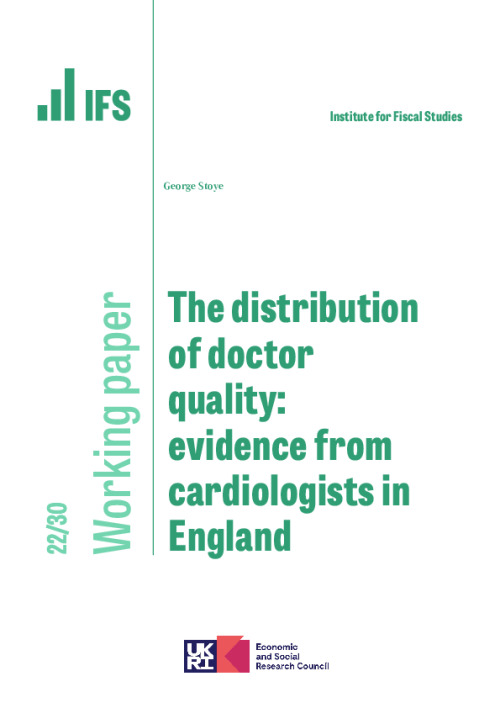There is widespread and unexplained variation in the outcomes of similar patients across place and providers in all developed health systems. This paper provides new evidence on the role senior doctors play in determining patient outcomes. I exploit within-hospital quasi-random assignment of patients to senior doctors following a heart attack to estimate the effectiveness of individual doctors, and to estimate returns to experience for these doctors. 28% of doctors work in multiple hospitals over a 13 year period, enabling the separate identification of doctor effects from hospital effects or observable patient characteristics. I find that a standard deviation increase in doctor quality reduces mortality rates over the next year by 3.6 percentage points, or 25% of mean mortality. There are relatively modest returns to specific experience, with mortality reductions from a standard deviation increase in the physician’s 3-year caseload equivalent to around 6% of a standard deviation in permanent doctor quality. Estimating the effectiveness of each physician when treating patients with specific diagnoses, I analyse potential mortality reductions from reallocating doctors across patients. I find that mortality could be reduced by 8% by reassigning doctors within-hospital to patients on the basis of their comparative ability to treat each patient type. These results suggest that substantial improvements in patient outcomes could be achieved by reallocating existing senior staff resources.










